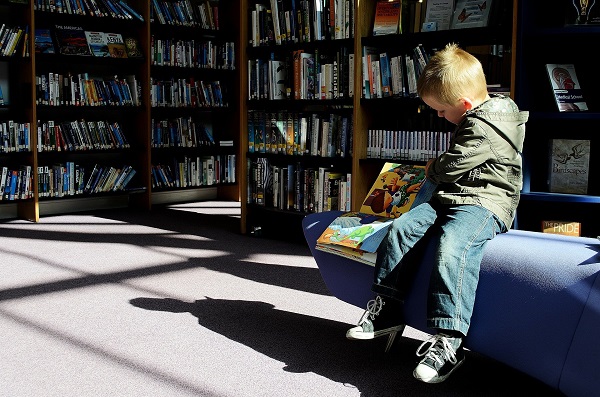A master’s degree program in reading and literacy, one of the 50 highest paying master’s degrees out there, involves more specialization than your average master’s in education degree. Graduate students who focus their education on reading and literacy develop an in-depth understanding of how language, especially written language, is taught and learned. In a master’s program for reading and literacy, you can expect to complete coursework in the concepts and methods of teaching and assessing literacy, research methods used in the field and linguistics. Most literacy programs allow students to put their knowledge to work through hands-on practicum experiences.
Courses in Teaching and Assessing Literacy
As a reading or literacy specialist, your career may focus largely on helping struggling students learn to read. To be successful in this role, you need more knowledge of how reading is taught, learned and understood than the average teacher. As a reading and literacy graduate student, you might start by taking a graduate-level class in the foundations of teaching and learning literacy. Because reading education and instruction doesn’t take place in a vacuum, students in this program may also examine the sociocultural contexts of language and literacy.
Students of literacy and reading learn not only the theoretical concepts of teaching children to read but also the practical applications of those concepts. That means developing knowledge of instructional methods used to effectively teach reading as well as the practical skills to implement them. It also means understanding how to evaluate students’ grasp of reading and literacy skills, a competency graduate students gain through courses in literacy assessment.
Reading and literacy specialists also have to develop the curriculum they will use to help struggling students gain the reading abilities they need. Graduate students typically take classes the focus on designing, implementing and evaluating literacy curricula.
Research in Literacy and Reading Instruction
What allows educators to understand literacy instruction and the challenges readers sometimes face is research. Although you may not plan on making a career out of research yourself, it’s valuable for reading specialists to be able to understand how research is conducted and how to interpret the findings of researchers in their field. Graduate programs in reading and literacy often include some coursework in research methodology in general or research in literacy and reading education specifically.
In reading and literacy master’s programs that require a thesis, students may devote some of their time and course credits toward their thesis research.
Linguistics and Literacy
There’s a difference between earning a graduate degree in linguistics, the scientific discipline concerned with the structure of language and how it evolves, and a degree in literacy. However, it’s ideal for graduate students of literacy and reading to have a fuller understanding of language, and that means diving into the relationship between linguistics and literacy education, including how students learn the structures of language.
Many master’s degree programs in literacy and reading also incorporate core coursework in education more generally. Don’t be surprised if, as a reading and literacy major, you also take classes in topics such as the foundations of education and classroom management.
IMAGE SOURCE: Pixabay, public domain
Literacy Practicum Experience
Even for experienced teachers, there’s a big difference between learning about literacy instruction interventions from a book or a lecture and actually putting those techniques into practice. You need hands-on experience to see how these instruction methods and interventions work and be able to make the judgment call of when and how to adjust them to suit an individual students’ needs. Literacy practicum experiences give graduate students the chance to work directly with real elementary school, middle school or high school students who are struggling with reading.
Some literacy and reading programs integrate multiple practicum experiences into the curriculum. This allows students to get experience in different aspects of literacy instruction, including working with individuals and with groups, designing and implementing a curriculum, organization literacy programs, assessing literacy learning progress and more. Graduate students may complete their practicum experiences with one age group of students to gain more experience with that grade level or with students of different grade levels to develop a greater breadth of experience.
Since graduate students are still in training, they usually complete their practicum experiences under the supervision of an established reading specialist or other practitioner. Currently licensed and employed teachers may complete a practicum at their own school.
Additional Resources
Is Reading and Literacy a Degree Meant for Teaching Mostly Elementary Children?
Are Schools the Main Places I Will Find a Job With a Master’s in Reading and Literacy?
Will a Master’s In Reading And Literacy Allow Me To Bypass Taking Certification Exams?

